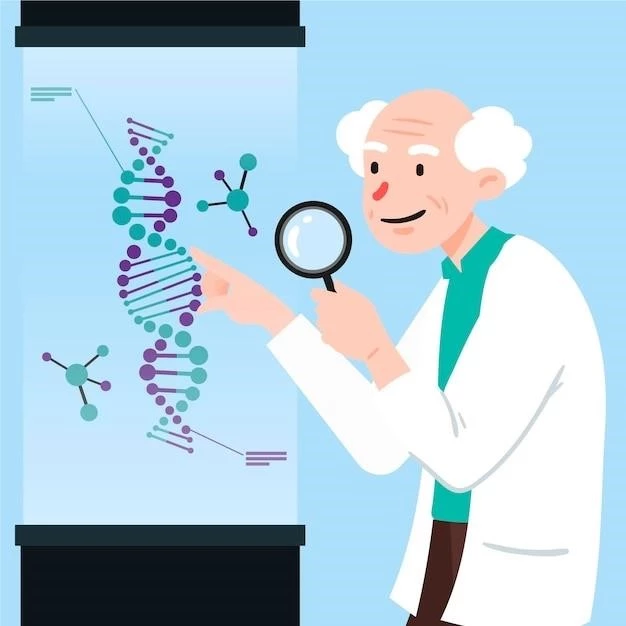Look out for developmental delays‚ intellectual disabilities‚ heart defects‚ and other physical abnormalities․
Recognizing the Signs
It is crucial to be aware of the signs of Chromosome 16 Trisomy for early intervention and management․ Watch for symptoms like developmental delays‚ intellectual disabilities‚ heart defects‚ and physical abnormalities․ If you notice any of these signs‚ seek a medical evaluation promptly for further assessment and guidance on a care plan tailored to the individual’s needs․
Chromosome 16 Trisomy is typically caused by the presence of an extra copy of chromosome 16․ Genetic counseling can provide insights․
Understanding the Genetic Aspect
Chromosome 16 Trisomy is primarily due to the presence of an extra chromosome 16‚ leading to developmental challenges․ Genetic testing is key to confirming the diagnosis and understanding the specific genetic makeup․ Consult a genetic counselor to discuss the implications and explore available options for managing the condition effectively․
Managing Symptoms and Improving Quality of Life
Focus on personalized care plans to address developmental delays‚ heart defects‚ and other symptoms․ Occupational therapy‚ educational support‚ and regular medical follow-ups can enhance the individual’s well-being and overall quality of life․ Emphasize creating a supportive environment and seeking specialized medical interventions tailored to the unique needs of the individual․

Testing and Confirmation
Diagnosing Chromosome 16 Trisomy involves genetic testing such as chromosomal analysis or microarray testing to confirm the presence of an extra chromosome 16․ Consult with a medical geneticist for a comprehensive evaluation and accurate diagnosis․ The results of these tests will guide healthcare professionals in developing a tailored care plan to address the specific needs associated with Chromosome 16 Trisomy․
Understanding the Outlook
Prognosis for Chromosome 16 Trisomy varies depending on the individual’s specific symptoms and overall health․ Regular medical monitoring‚ early intervention‚ and a supportive environment can positively impact the quality of life․ Stay informed about advancements in treatment and care options to optimize outcomes and promote well-being․ Seek guidance from healthcare professionals and support services to navigate the challenges associated with Chromosome 16 Trisomy․
Accessing Assistance and Guidance
When facing the challenges of Chromosome 16 Trisomy‚ connect with support groups‚ genetic counselors‚ and specialized healthcare professionals․ These resources offer invaluable guidance‚ emotional support‚ and practical assistance․ Stay informed about available services and programs that cater to the specific needs of individuals with Chromosome 16 Trisomy․ Collaborate with a multidisciplinary team to access comprehensive care strategies and enhance the quality of life for you or your loved one․
Exploring New Developments
Stay informed about the latest research on Chromosome 16 Trisomy․ Research advancements may lead to novel treatments‚ care strategies‚ and supportive interventions․ Participating in clinical trials‚ following scientific publications‚ and consulting with healthcare providers can help you access cutting-edge developments and potentially improve outcomes․ Engage with the scientific community to contribute to the progress of knowledge and enhance the understanding of Chromosome 16 Trisomy for better management and future prospects․
Coping Strategies and Enhancing Quality of Life
Living with Chromosome 16 Trisomy may require a multidisciplinary approach․ Focus on creating a supportive environment‚ accessing specialized therapies‚ and forming a strong support network․ Encourage independence and celebrate achievements‚ no matter how small․ Stay connected with healthcare providers for ongoing guidance and monitoring․ Embrace each day with love‚ patience‚ and a positive attitude towards holistic well-being․
